Australia is an appealing option for American citizens thinking about relocating overseas. The stunning landscape, lack of a formal language barrier, and attractive economic opportunities send droves of expats down under. But is it really as simple and glittering as it’s portrayed? The short answer is: yes. Expat life in Australia is pretty damn good.

What It's Really Like to Live as an Expat in Australia
That said, as with any life upheaval, there are things you need to consider before heading off with your surf school reviews in hand and newly learned Australian lingo in mind. Chantae Reden, an American travel writer and photographer, left the US for Perth in 2013. Touching upon topics such as cultural acculturation, applying for visas and setting up a home, Reden shares the nitty-gritty practicalities of living in Australia as an expat.
This interview has been edited for length and clarity.
- About Chantae Reden
- The visa process
- Accomodation and setting up home
- Finance and job opportunties
- Healthcare
- The society in Australia
- Life in Australia compared to the US
- Safety
- General advice
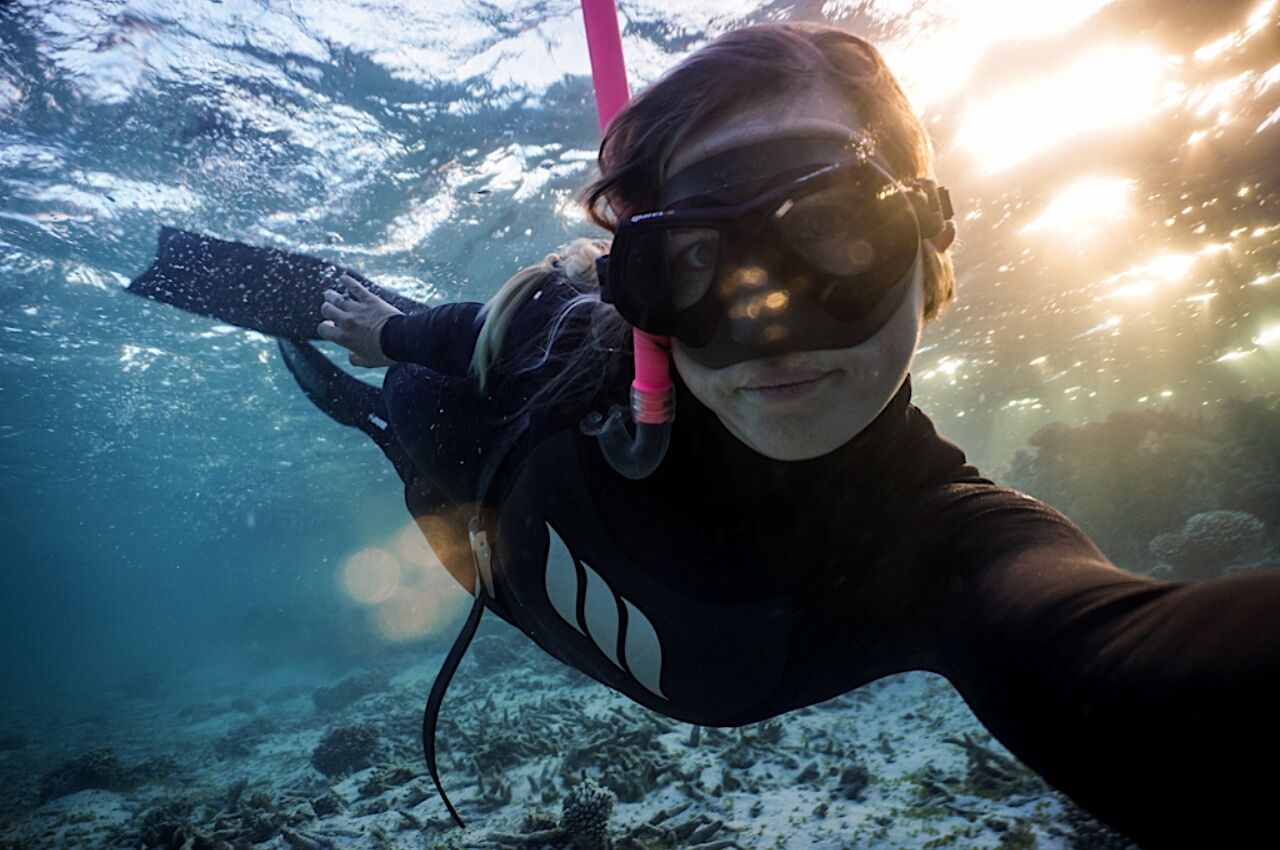
Photo: Chantae Reden
About Chantae Reden
Matador: Where are you originally from?
Chantae Reden: I’m originally from San Diego, California. I lived in Los Angeles for four years while attending university.
Where do you live now?
I currently live part-time in Perth, Western Australia, and part-time in Suva, Fiji — though I’ve been based in Fiji for a large part of the pandemic because of border closures and travel restrictions. I moved to Perth at the beginning of 2013 and added Fiji as a secondary home base in 2017.
Did you move to Australia with family or a spouse?
I technically went to Australia first as a tourist to visit a newfound love interest. After a few months, I made the leap to move over as an expat.
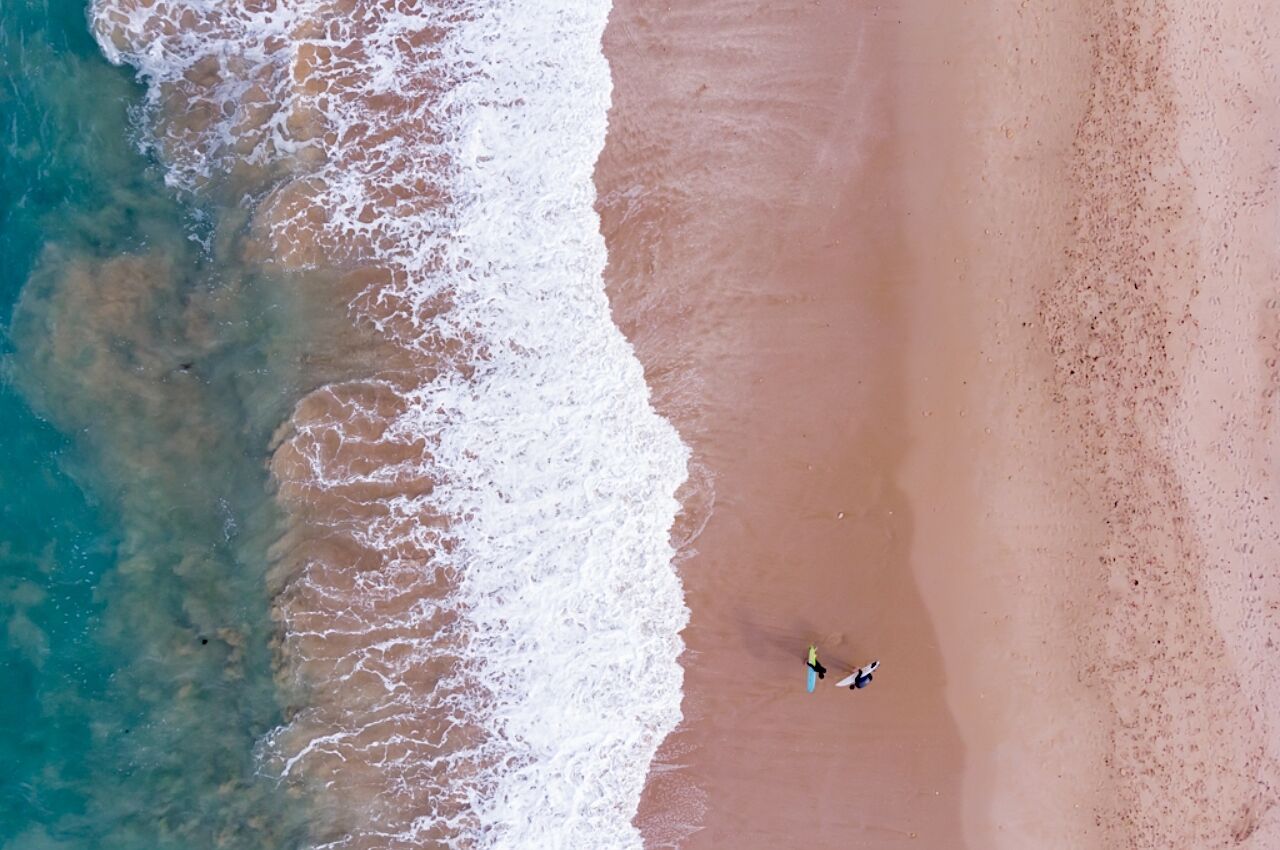
Photo: Chantae Reden
What made you consider moving to Australia?
At the end of 2012, I met a German traveler through Couchsurfing. He stayed with me and my roommates while on a stopover to Western Australia, where he’d be attending university. We kept in touch at the beginning of 2013 as I was traveling through Europe. When it was time to leave due to Schengen visa troubles, he suggested I come to Australia and figure out what to do next. Because I’d just graduated and didn’t have a job, mortgage, or any familial commitments. I figured, why not? Worst case, I could always head back to California.
Logistics and practicalities of moving
What visa did you have to apply for?
I entered Australia on a Working Holiday Visa. This visa allows travelers to stay in Australia for up to one year, and you can work for up to six months per job. Once my partner and I were together for a year, I applied for a de facto spouse visa. This allows me to stay in Australia as long as my partner’s visa is valid.
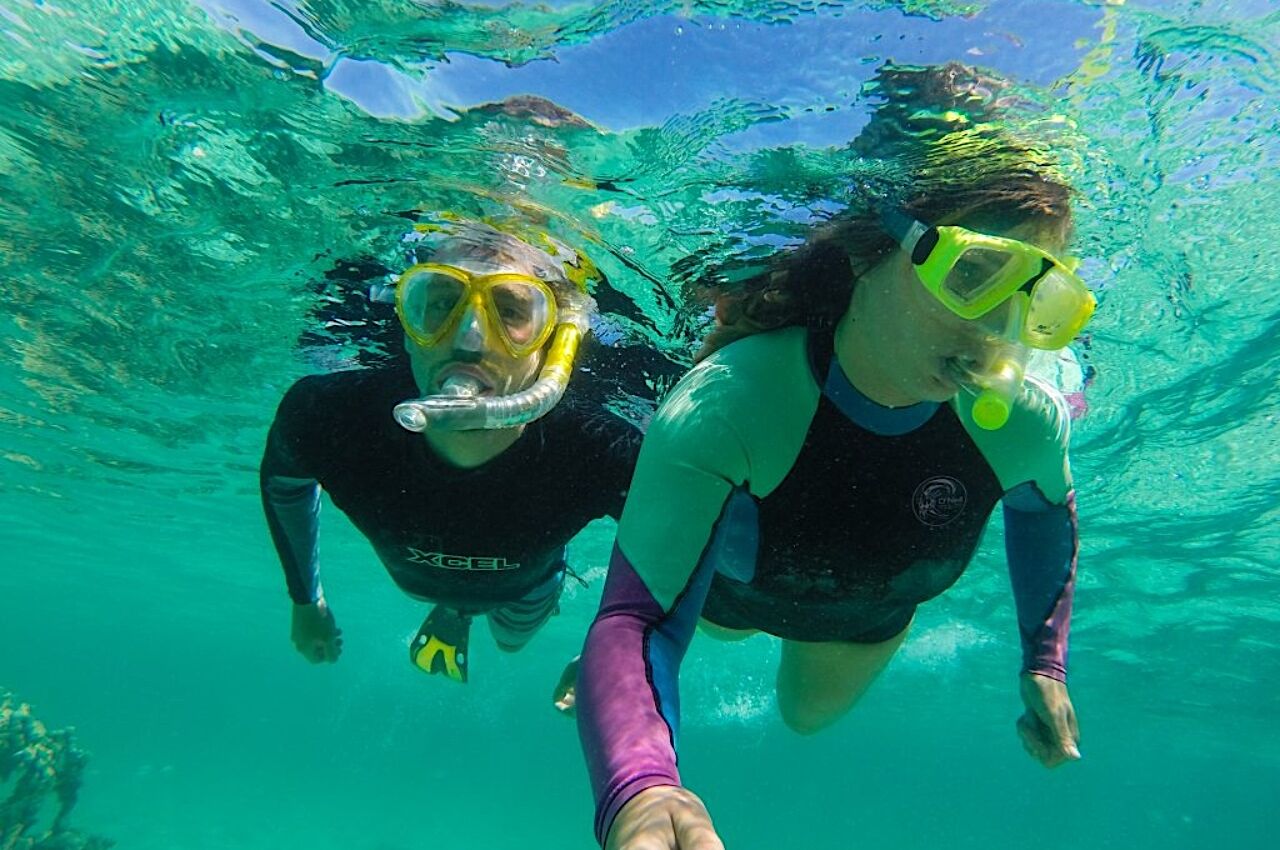
Photo: Chantae Reden
What were the visa requirements and how was the process?
To apply for the Working Holiday Visa (subclass 417), you must be between 18 and 30 years old and hold a passport to a country approved under this program. You can stay for up to 12 months and the application cost is $495 AUD. I applied online and was approved within three days. Most applications are approved within a month of applying. You can extend this visa another twelve months by working in a specialized field – most tourists go to rural areas of Australia and complete this by working on farms.
Do you have any general advice for anyone regarding visas?
I recommend thinking about how long you hope to stay in Australia. If you’re planning to stay for one to three years, a Working Holiday Visa is well worth the application fee. You can always look for sponsorship through an employer if your career is in an industry the government deems as being in demand, which is listed on their skilled occupation list.
If you’re over 30 years old and ineligible for the Working Holiday Visa, there are a few other routes you can go. There are visas targeted toward business owners, investors, and entrepreneurs. You can also enter Australia long-term by agreeing to work in regional Australia.
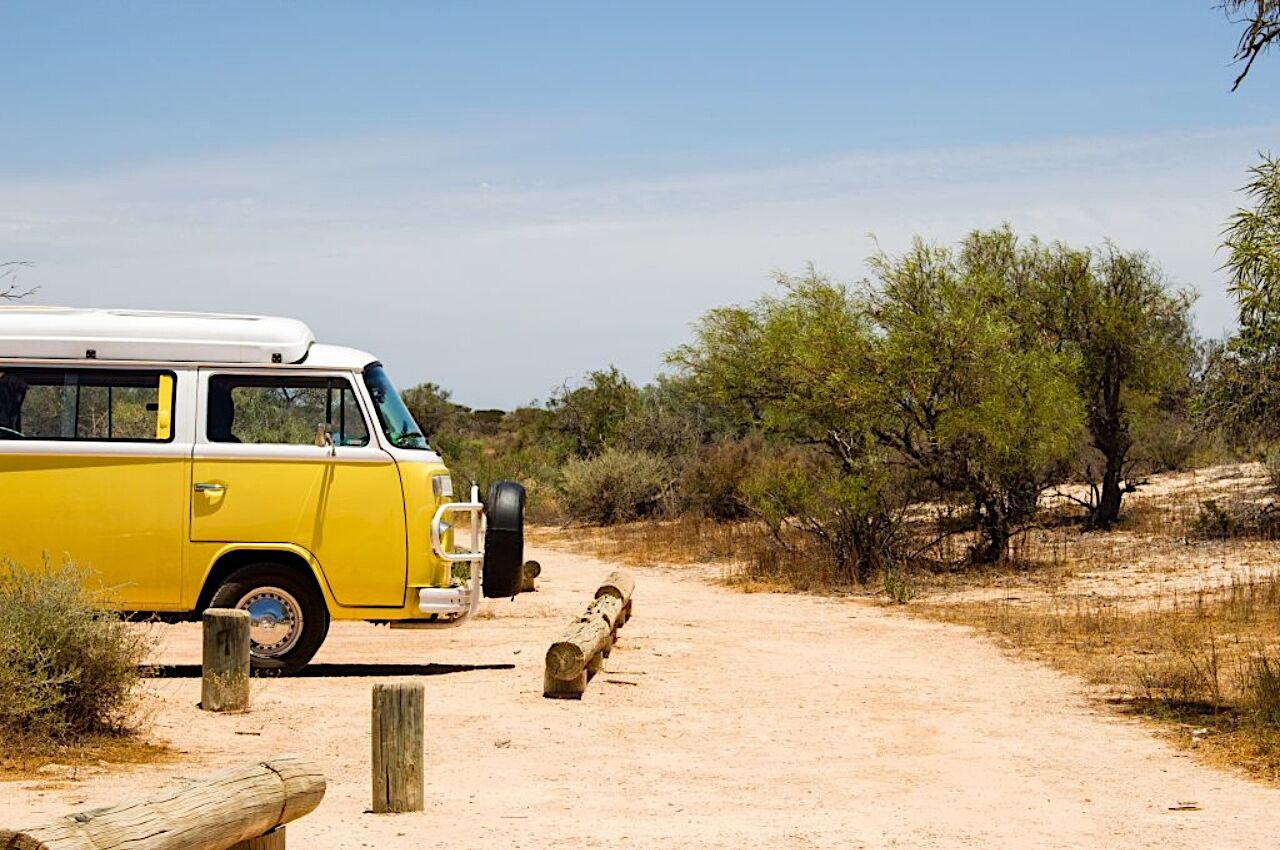
Photo: Chantae Reden
What are the best places in Australia for expats to live?
Any of the major cities offer an incredible and unique lifestyle. For big city living, a thriving art scene, some of the country’s best restaurants, and varying weather, head to Melbourne. Gold Coast is glamorous and offers access to incredible waves. Sydney enables a DIY adventure way of life and is hard not to love with mountains, beaches, coastal walks, and shops galore all within a short drive away. If you love the remote wilderness, check out Perth — it’s one of the most isolated cities in the world — Hobart, or Darwin. They’re all adventure hubs. The smaller towns are not to be discounted, too, especially if you’re only in Australia for a year or two.
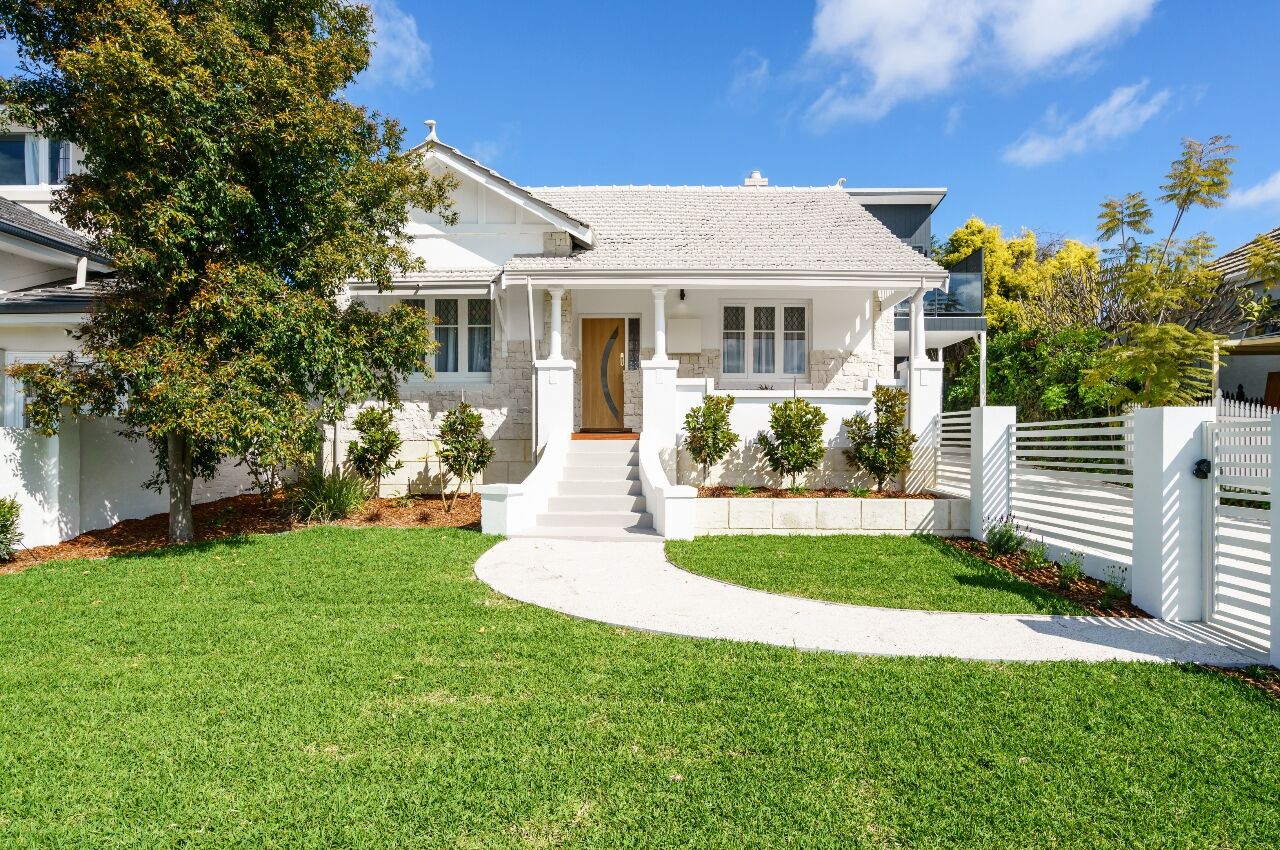
Photo: bmphotographer/Shutterstock
What is the standard of housing like in Australia?
Australian housing is held to high standards. Older homes tend to be poorly insulated, but you can find a safe and comfortable home and apartments throughout the country, especially near the major cities. Even expats on a budget can usually find a nice place to live by moving into a flatshare. In rural areas, housing tends to be more limited and it can be tough to find a decent place to stay for an affordable rate.
Did you rent or buy accommodation? And did you manage this from overseas?
I have rented four homes in Western Australia — always shared with other flatmates. It’s wise to stay in temporary accommodation for the first few weeks you’re in Australia before committing to an accommodation. Pictures and descriptions can be deceiving, and most accommodations require at least two months of rent upfront before handing over the keys. You’ll want to check out each spot in person to make sure it’s really a place you’d like to stay. A home that looked like a total dud online ended up being my favorite place of all in person. And, it was just a five-minute walk from a white sand beach!
How easy did you find setting up a bank account?
It’s easy to open a bank account in Australia, even from overseas — although some banks may require a residential address. Because my bank in the US had branches in Australia, I decided to open a secondary account there. You’ll want to consider the availability of bank branches and ATMs, plus transaction fees if you use your card. For US citizens, you’ll also need to declare your overseas accounts (file an FBAR) once you reach a certain savings threshold which is something else to keep in mind.
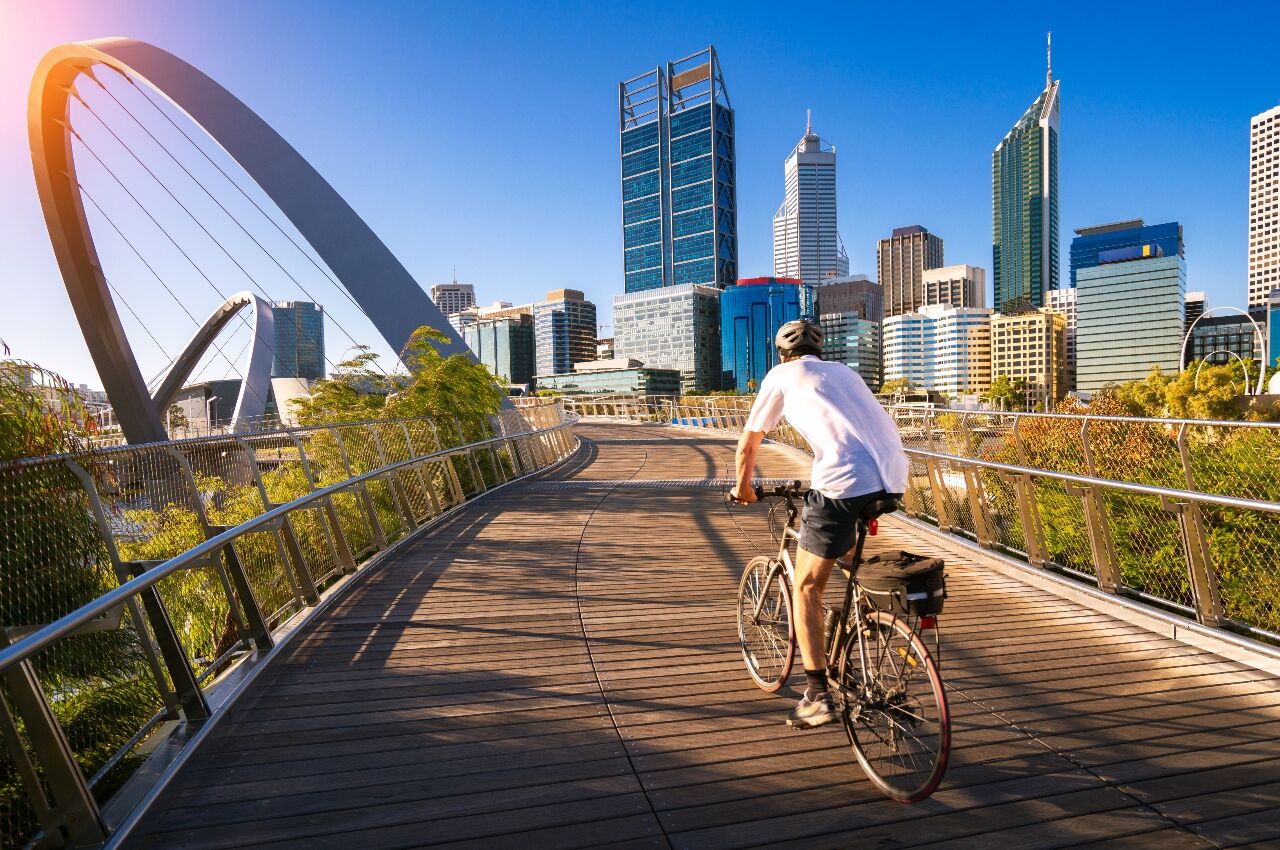
Photo: anek.soowannaphoom/Shutterstock
What salary do you need to live in Australia?
Australia is not a budget-friendly destination by any means, which is why so many younger travelers arrive on a Working Holiday Visa to fund their journey. I was earning near minimum wage when I first arrived (around $21-35 AUD per hour in Australia). This was enough to cover my portion of rent, groceries, and weekend trips spent camping and cooking at campsites around Australia. My partner also contributed to living costs through his university stipend.
Now, we earn more and are able to spend more. But you’ll want to earn at least minimum wage ($40,000 AUD per year) to avoid feeling too stressed about finances.
What is the economic climate like in Australia, are there plenty of work opportunities?
Whether or not you’ll find work depends on your industry. Look for jobs in hospitality and tourism if you want a seasonal role that’ll give you the flexibility to move to a new city once the high season is over. If you’re searching for a permanent role, consult the Australian Immigration Website for skilled occupations. If you have a job in one of these in-demand fields, it’ll be easier for you to find a job.
What is the cost of living in Australia compared to the US?
While the cost of living is high in Australia, wages also tend to be comparable — especially if you’re coming from a high cost of living area in the United States where the cost of living is high and average wages are low. You will need a Tax Filing Number (TFN) to work in Australia.
Two similar cities in terms of lifestyle are San Diego and Sydney. In San Diego, the average cost of a one-bedroom apartment per month is around $1,940 according to CoStar, a real estate tracker. In Sydney, the average for a similar apartment is around $1,600 per month. Things like restaurant meals, groceries, gasoline, and entertainment fees tend to be slightly more expensive in Australia. Budget $600 per week if you will be living minimally to cover a room in a shared home, basic bills, public transport, and groceries. Major cities like Sydney, Melbourne, and Perth are generally more expensive than the outer suburbs and rural towns.
Does Australia have free healthcare? And how would you rate the level of care?
Australians have access to free or low-cost healthcare through Australian Medicare. As an expat, you might be required to purchase a private healthcare plan. The quality of healthcare in Australia is some of the best in the world. However, if you’re going the public healthcare route, you might be waiting a while to see a public physician for a non-emergency procedure. If you have private health insurance, you can see a private doctor and be treated much quicker than going through the public route. Private healthcare in Australia is much more affordable than in the United States.
About the society in Australia
In general, is life in Australia good for expats?
Australia is amazing for expats if you make the effort to embed yourself into the community. The country is so diverse, you’re bound to find a spot that feels like home if you look hard enough. Australians are super active when it comes to outdoor activities, sports, arts, music, learning – there are plenty of ways to make friends and try new things.
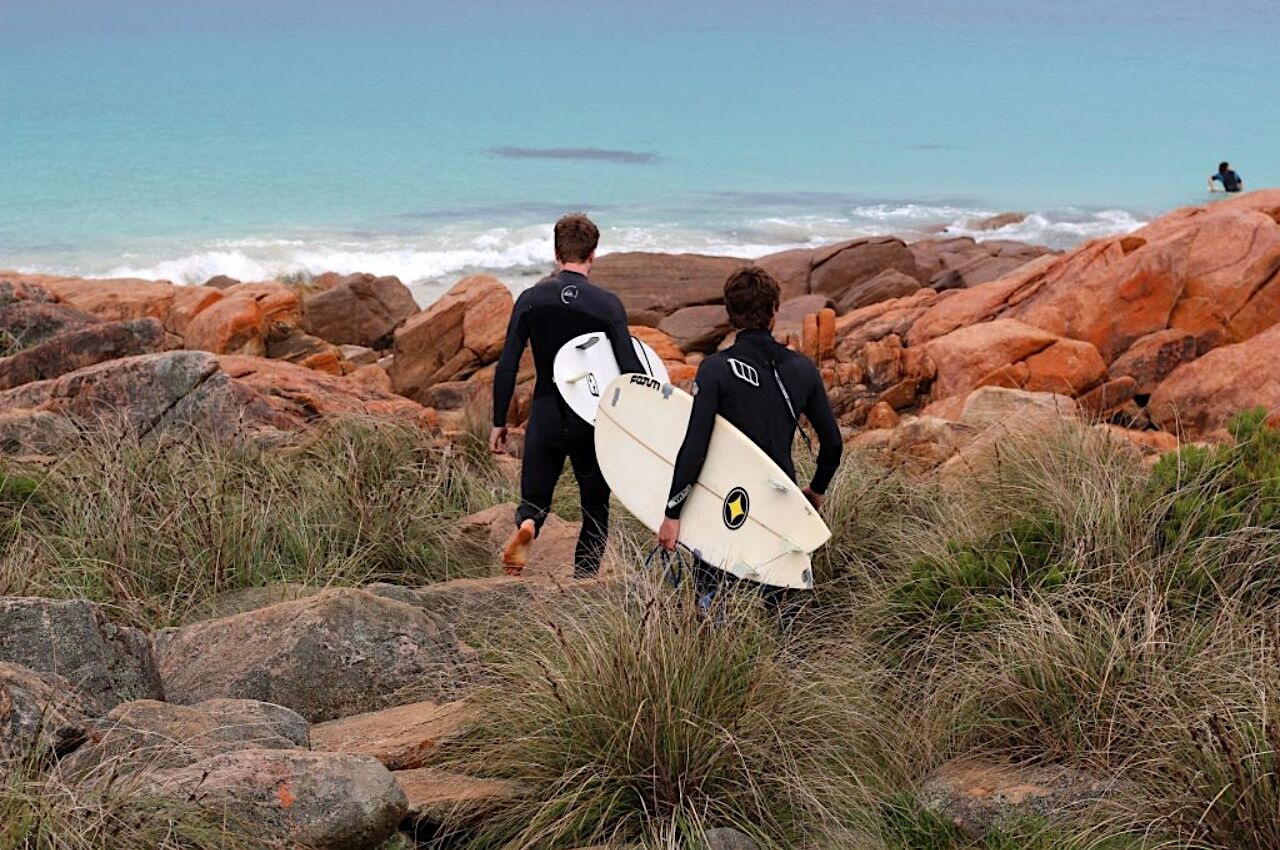
Photo: Chantae Reden
What is it like to live in Australia as a foreigner? What are the downsides of living in Australia?
As a white English speaker, I can only share what it’s like to be a foreigner in Australia from a limited perspective. While I might get an odd comment over my American accent, most people don’t treat me any better or worse because I’m a foreigner.
Coming from a very diverse city like Los Angeles or San Diego and moving to a more homogenous city like Perth took some time to get used to — I missed interacting with people from more diverse backgrounds. Problems with racism, climate change, and gender inequality exist in Australia in somewhat similar ways as they do in the United States, though obviously with localized nuance.
What do you enjoy most about living in Australia? Is the quality of life better in Australia than in the US?
The landscape of Western Australia is unlike anywhere else. The state covers roughly a third of the country but is only inhabited by two million people. This means once you leave Perth, you’re in the wild, wild west — and it truly feels that way. A dramatic red dust center clashes with white sand beaches and turquoise waters. To the south, forests of karri trees give way to vineyards, and some of the world’s best surfing just offshore. Australia is full of many similar landscapes. I’ve traveled to tens of countries but have never felt the same level of immersion in nature and freedom as I do when I’m driving along the Australian coastline.
I think the quality of life for a young family is better in Australia than in the US, especially for those who are earning an average income. The healthcare costs, housing costs, and work-life balance in Australia seem to be more reasonable than in comparable cities in the US. Of course, the lack of in-person family support is a major downside every expat will face no matter the destination.
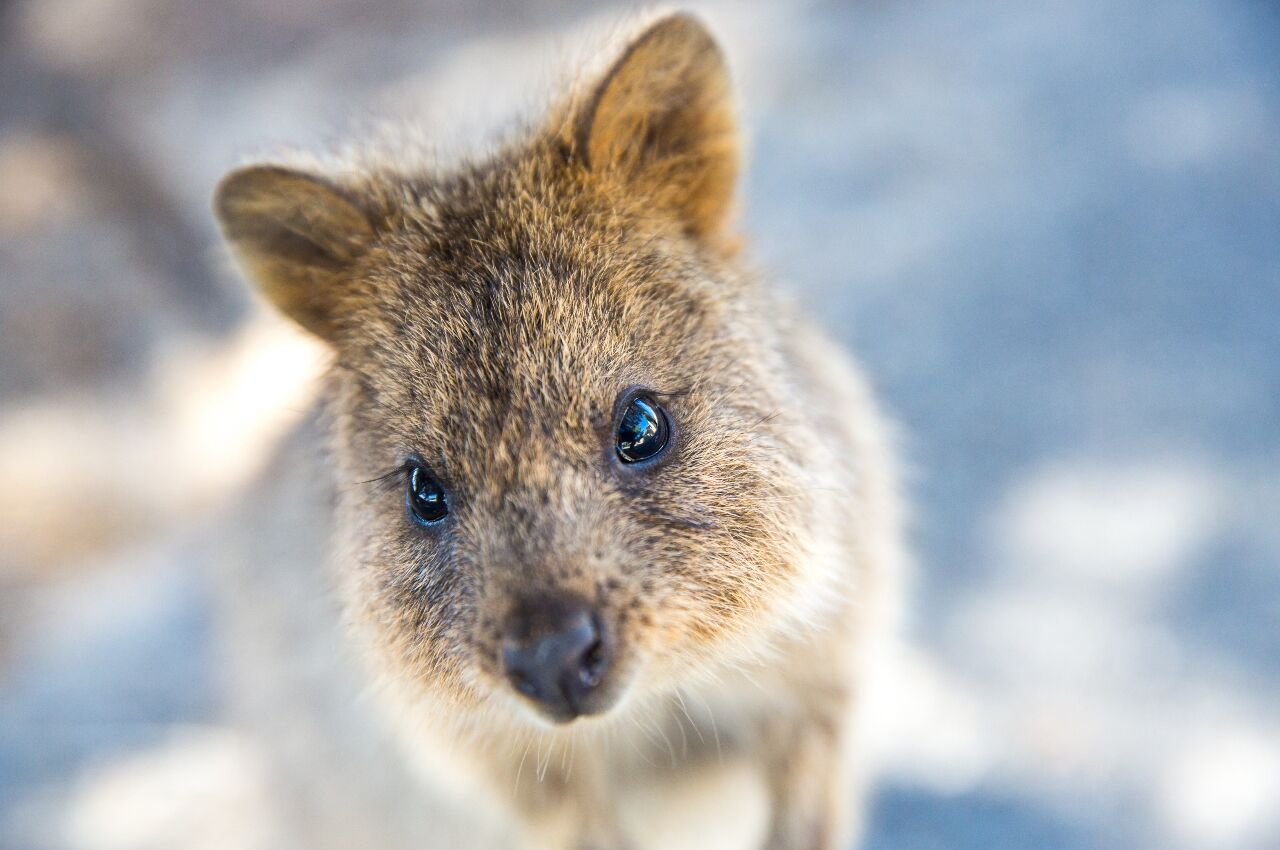
Photo: Victor Maschek/Shutterstock
What do you miss from home?
Australia is a far flight for almost everyone outside of Southeast Asia and the South Pacific. Long-haul flights are pricey and time-consuming, making it challenging for family members and friends to visit. I miss my friends and family overseas, and this has been the biggest challenge as an expat for me. There’s a snack store in the city that sells treats from the United States, which tempers some of my comfort food cravings.
Because I’m in the water almost every day, I miss not having to worry about sharks. In California or Fiji, I never think about them. And while my risk of getting bit is still minuscule in Western Australia, the irrational and primitive part of my brain worries whenever I head into Australian waters.
What are the biggest safety concerns facing expats in Australia?
Like any major city in the world, Australia’s more urban areas have bouts of theft, violence, and harassment — so you’ll want to take the same precautions you would anywhere else. Outside of that, you’ll want to keep tabs on mother nature. Getting a major sunburn is a rite of passage in Australia, but you can avoid it if you’re extra cautious. If you’re unfamiliar with the ocean, it’s safest to swim at beaches with a lifeguard. Once you leave the city, you might not have reliable cell phone reception or internet connection, so it’s wise to pack a first aid kit and a few extra supplies on any remote road trips.
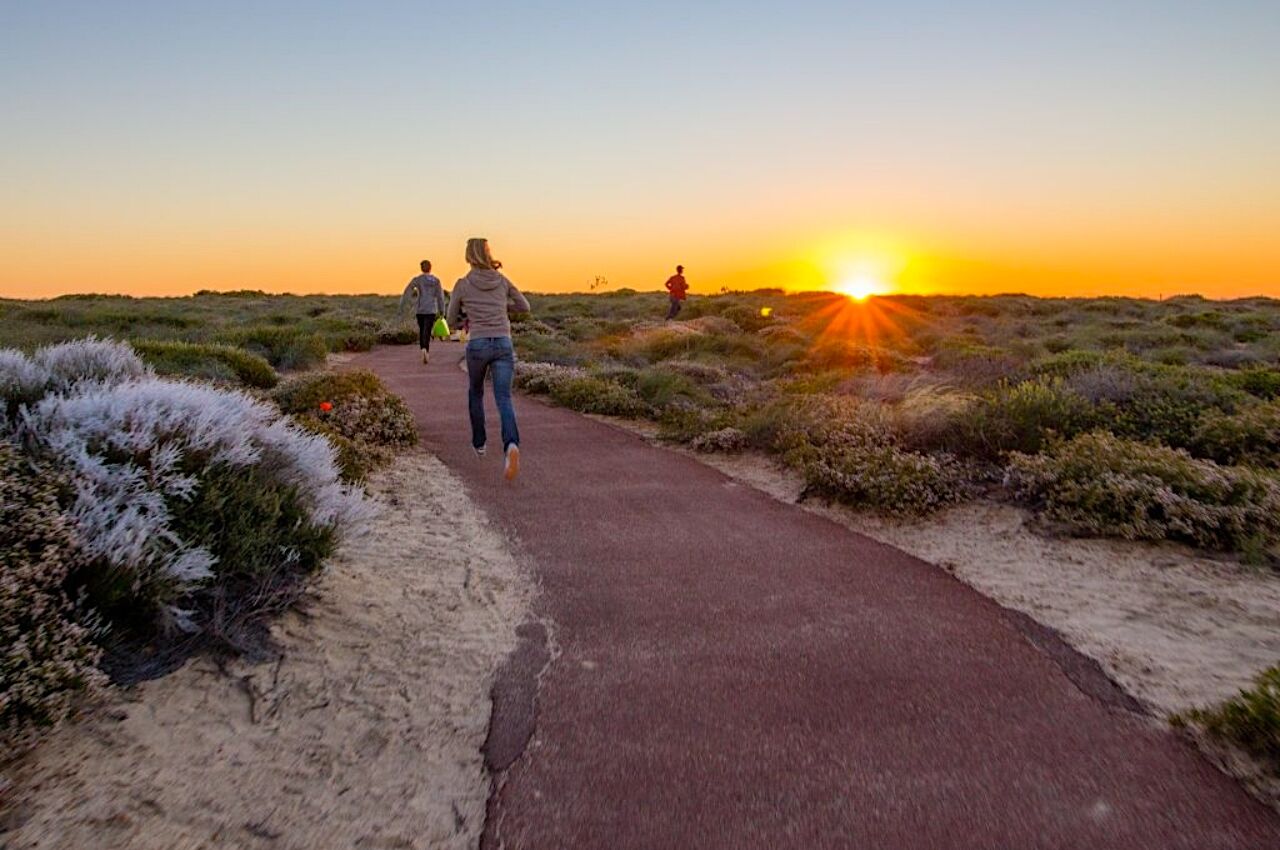
Photo: Chantae Reden
How welcoming are locals of foreigners? Have you experienced any difficulties or discrimination?
I can’t speak about how it is to be a non-white, non-English speaking expat in Australia. The Australian Human Rights Commission states that 20 percent of Australians surveyed had experienced racial or religious discrimination within the past 12 months. They also note that migrants and refugees regularly experience racism. I think how you’re treated in Australia largely depends on where you go and whether that community has a diverse population already. Melbourne, for example, is an international city with residents hailing from all around the world. More rural areas of Australia don’t typically have that same level of diversity.
Is there any general advice you would offer someone who is considering moving to Australia?
Australia is such a gargantuan place with endless possibilities for adventure. If you can, spend the first few months of your trip traveling around as much as possible until you find a hub. You might find it easy to pick up a job in hospitality in any of the coastal cities if you need cash. Once you’ve found a spot, sign up for every activity under the sun. Snorkeling, scuba diving, surf lessons, hiking, cooking lessons, music lessons, language learning — there’s plenty to do and get excited about.